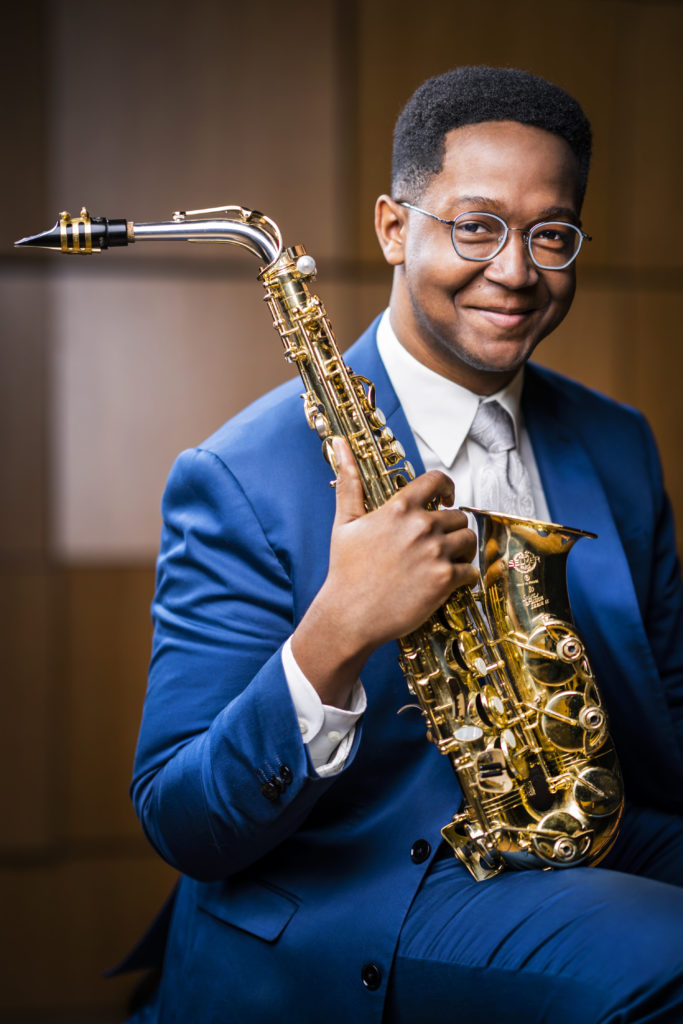San Diego Symphony Celebrates the California Festival With Five Impressive New Compositions
To celebrate the San Diego Symphony’s opening concert in the statewide California Festival, Music Director Rafael Payare led the orchestra in five impressive new works by four living composers Saturday at the Rady Shell. In my long career of covering the San Diego Symphony–starting in the days of Music Director Peter Eros–I cannot recall a single symphony concert where new music so predominated over standard repertory, which on Saturday was solely represented by the Richard Strauss tone poem Also sprach Zarathustra.
The California Festival—A Celebration of New Music was the brainchild of Payare and his fellow symphony directors in Los Angeles and San Francisco, Gustavo Dudamel and Esa-Pekka Salonen. San Diego Symphony CEO Martha A. Gilmer explained in her welcome to the Rady Shell audience that just under 100 California music organizations are participating in The California Festival, and over the next three weeks these organizations will present 180 new works!Among the San Diego Symphony’s five new works performed on Saturday, Billy Childs’ spectacular Diaspora (Concerto for Saxophone and Orchestra) easily stood out as the most rewarding offering, both for the eloquence of Childs’ writing and the superlative technical prowess of the saxophone soloist Steven Banks. Chillds is acclaimed as a jazz pianist as well as a classical composer, and each aspect of the composer’s identity makes Diaspora stand out. His sophisticated structure and brilliant orchestration testify to his classical strengths, while the ebullient complexity of the solo saxophone writing suggests the audacious freedom of jazz improvisation.
From the printed program notes, we learn that Banks collaborated with Childs to develop the saxophone concerto’s program: a musical chronicle of the African-American experience from life on the African continent to the terror of the middle passage and enslavement on a foreign continent, to the African-American community’s march towards empowerment before and since the Civil Rights era.
Although Childs wrote the concerto in an expansive, single movement, the three stories that make up its program unfold in three contrasting moods, each with distinct orchestral textures. In the opening section titled “The Motherland,” the combination of Banks’ suave, lyrical phrasing on soprano saxophone and Childs’ ebullient themes suggested an idyllic or at very least a confident peaceful existence.
In the second section, “If We Must Die,” the composer switches the solo voice to the alto saxophone, which allowed Banks to engage its richer, more mellow incantations that quickly exploded into defiant, anxious roulades to challenge the roiling orchestra. After much conflict comes elegiac quiet from the strings, while Banks’ saxophone grieved poignantly while standing behind the violins and violas.
Because the black church has given both comfort and support to those working for black empowerment, Childs centers Diaspora’s final chapter with an original hymn infused with a gently insistent gospel beat. The hymn gains momentum summoning the full orchestra to a bold climax that called on Banks to return to the soprano saxophone for a cadential flourish in its highest register to crown this tremendous symphonic forte.
Payare opened this festival concert with Korean composer Texu Kim’s high-spirited ZZan!!, a Korean term that translates as “cheers!” This vibrant orchestral toast effervesced with cascades of short ascending motifs that suggested the words of traditional toasts in various languages and added symbolic toasts with glassware raised and clinked by various members of the orchestra when their colleagues were busy doing the musical heavy lifting. Like other Kim pieces I have heard, ample and cheeky use of the percussion section brought out the composer’s irrepressible good humor.
Payare chose two movements of American Composer David Chesky’s The Abreu Danzas, a work written with a nod to Latin American musical styles in honor of the great Venezuelan conductor and founder of El Sistema Antonio Abreu. The infectious syncopated percussion rhythms of Danza No. 4 sauntered boldly while allusions to slinky Latin America pop tunes were passed from section to section in the orchestra. Rousing solo drumming and edgy snarls from the brass sections marked Danza No. 5.
In his program notes for A Casual Walk to Extinction, Spanish composer Juan Colomer’s preaches against society’s casual disregard for the urgency of climate change. A haunting alto flute solo over a high-pitched harp ostinato delivers his stern warning while the orchestra slowly marches to an unrelenting ominous beat. The dissonant harmonies of a muted brass chorale also confirm Colomer’s dire assessment of the situation.
While the San Diego Symphony admirably rose to the occasion in this demanding program of music they had never previously performed, Payare gave them the questionable comfort of closing the concert with the familiar Richard Strauss tone poem Also sprach Zarathustra. After its rousing opening fanfare, made universally recognizable by its quotation in Stanley Kubrick’s 2001: A Space Odyssey, this lengthy orchestral tour de force spares no section of the orchestra in the composer’s meandering philosophical musings. While the orchestra played magnificently under Payare’s meticulous and passionate direction, I am not certain a heavy dose of Richard Strauss was the perfect ending to this adventurous concert of exciting and probing new music.
This concert was presented by the San Diego Symphony at the Rady Shell at Jacobs Park on San Diego Bay on Saturday, November 4, 2023.

Ken Herman, a classically trained pianist and organist, has covered music for the San Diego Union, the Los Angeles Times’ San Diego Edition, and for sandiego.com. He has won numerous awards, including first place for Live Performance and Opera Reviews in the 2017, the 2018, and the 2019 Excellence in Journalism Awards competition held by the San Diego Press Club. A Chicago native, he came to San Diego to pursue a graduate degree and stayed.Read more…

